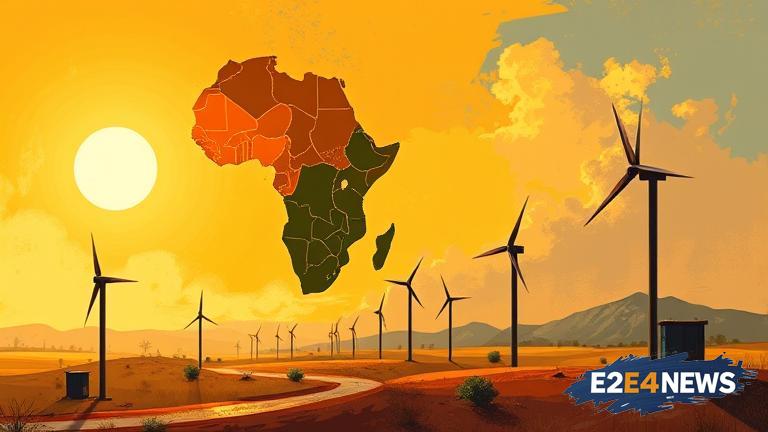The African continent is witnessing a significant shift towards renewable energy, driven by the need to address the pressing issues of energy access, climate change, and sustainable development. With a growing population and increasing economic activities, the demand for energy is on the rise, and renewable energy sources such as solar, wind, and hydroelectric power are becoming increasingly attractive. Many African countries are setting ambitious targets to increase their share of renewable energy in the energy mix, with some aiming to reach 100% renewable energy by 2050. The use of renewable energy is not only reducing dependence on fossil fuels but also creating new job opportunities, stimulating local economies, and improving energy security. In addition, renewable energy is helping to mitigate climate change by reducing greenhouse gas emissions, which is critical for the continent’s vulnerable ecosystems and communities. The cost of renewable energy technologies is decreasing, making them more competitive with fossil fuels, and innovative financing models are being developed to support the growth of the renewable energy sector. Governments, international organizations, and private sector companies are working together to support the development of renewable energy projects, including solar farms, wind parks, and hydroelectric dams. The African Union’s Agenda 2063 and the United Nations’ Sustainable Development Goals (SDGs) are providing a framework for the development of renewable energy in Africa. The International Renewable Energy Agency (IRENA) is also playing a key role in supporting the growth of the renewable energy sector in Africa, providing technical assistance, and promoting knowledge sharing. Furthermore, the African Development Bank is providing financing for renewable energy projects, and the European Union is supporting the development of renewable energy in Africa through various initiatives. The private sector is also investing heavily in renewable energy, with companies such as Vestas, Siemens Gamesa, and Goldwind establishing a presence in Africa. The growth of the renewable energy sector is also driving innovation, with new technologies and business models being developed to support the integration of renewable energy into the grid. Energy storage technologies, such as batteries, are becoming increasingly important, and electric vehicles are being introduced in many African countries. The development of renewable energy is also having a positive impact on energy access, with many off-grid communities being connected to renewable energy mini-grids. However, despite the progress being made, there are still significant challenges to be addressed, including the need for greater investment, better policy frameworks, and improved infrastructure. The lack of access to financing, particularly for small-scale renewable energy projects, is a major constraint, and the development of local manufacturing capacity is critical to reducing costs and creating jobs. Moreover, the integration of renewable energy into the grid requires significant investment in transmission and distribution infrastructure, and the development of smart grids is essential for managing the variability of renewable energy sources. In conclusion, the renewable energy revolution in Africa is gaining momentum, driven by the need to address the pressing issues of energy access, climate change, and sustainable development. With the right policies, investments, and technologies, Africa can become a leader in the global transition to a low-carbon economy, and the benefits of renewable energy can be shared by all. The future of energy in Africa is renewable, and it is essential that governments, international organizations, and private sector companies work together to support the growth of the renewable energy sector. By doing so, Africa can unlock its vast renewable energy potential, reduce its dependence on fossil fuels, and create a sustainable and prosperous future for all. The time for action is now, and the opportunities for renewable energy in Africa are vast and varied. As the continent continues to grow and develop, it is essential that renewable energy is at the forefront of the energy mix, providing clean, reliable, and affordable power to all. With the right vision, leadership, and investment, Africa can become a beacon of hope for the world, demonstrating that a low-carbon economy is not only possible but also desirable. The renewable energy revolution in Africa is a story of hope, opportunity, and transformation, and it is essential that we all play our part in supporting its growth and development.
